
It’s a funny thing about leaving a job you’ve had for a long time. Your departure is usually more momentous than when you arrived.
That mark you leave when you’re headed for the exit door that last time can be your legacy. Handle it well, with class and aplomb, and your co-workers may remember your “swan song” forever.
Flame out, and they’ll remember that, too. Just not necessarily in a good way.
Of course, part of the impact a departing manager or boss has is often directly proportionate to precisely how her exit was engineered or positioned. When the company makes the call, it may be hard to get in that last word.
But when an impactful boss walks out the door on her own terms, everyone is curious about what that final message means…usually to them.
The ultimate version of the scenario just happened at Amazon, when Jeff Bezos, the company’s founder, leader, and guiding light made the decision to step down, and start planning his next act.
Sadly, Steve Jobs wasn’t able to go out on his own terms.
Bill Gates may be the closest equivalent to Bezos in terms of wealth, impact, and influence. Along with his wife, Melinda, Gates has led his post-Microsoft life with signature introspection, philanthropy, and trying to make the world a better place. His relationship with mentor Warren Buffet has ostensibly provided the former Microsoft leader with grounding and perspective.
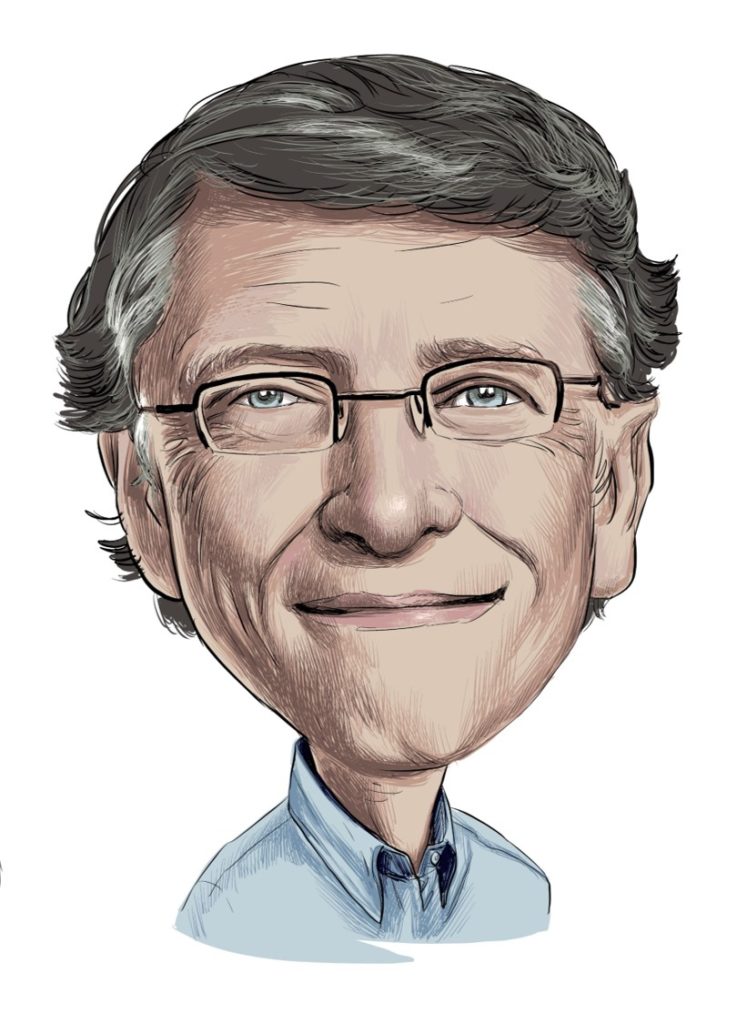 More than two decades after leaving his software juggernaut, Gates continues to have impact, appearing in the media, writing books, and sharing some of his learnings. One of my favorite Gates quotes:
More than two decades after leaving his software juggernaut, Gates continues to have impact, appearing in the media, writing books, and sharing some of his learnings. One of my favorite Gates quotes:
“Your most unhappy customers are your greatest source of learning.”
Amen to that. I’ve put that philosophy to work in pretty much every career situation I’ve been in. We often talk about that “Why Radio?” question in our annual Techsurveys – the main drivers behind why consumers still tune in and enjoy broadcast radio.
But as Gates suggests, the true insight is often gained by studying those who have left the fold – consumers who tell us they have spent less time with the medium in the past year.
And looking back at 2020 – “The Year of COVID” – it is a particularly revelatory situation for everyone in broadcast radio. Yes, it was the worst of times. But why?
Was it “unforced errors,” outside forces, or something altogether different that led to 13% of this year’s Techsurvey admitting they’ve been less involved with the medium?
So we attack the problem with a similar methodology as the one we use to identify broadcast radio’s core strengths. We give them a long list of potential negatives, and ask these disenfranchised respondents to tell us which ones were most to blame for their disaffection with radio in the prior year.
And here’s what we learned:
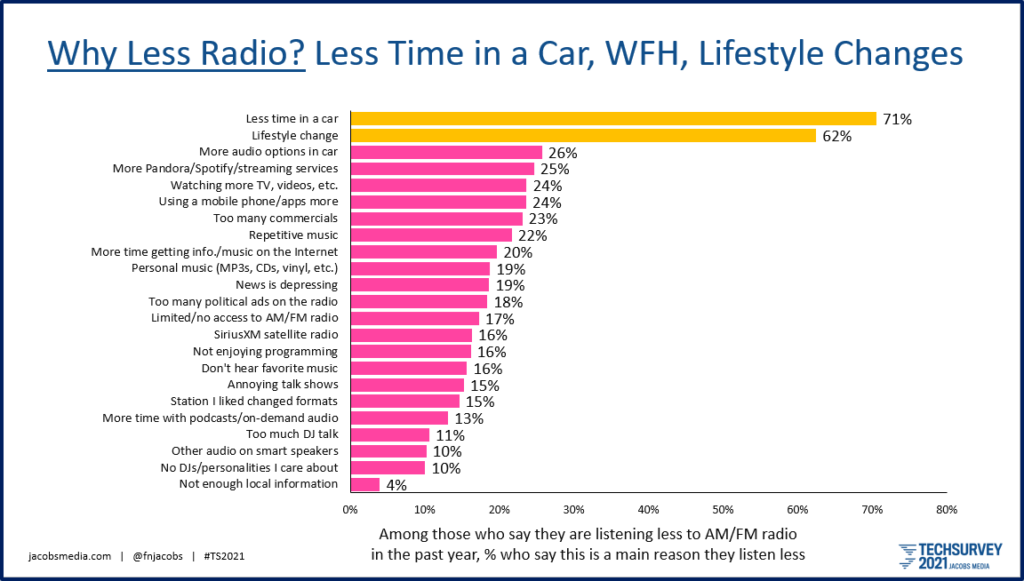
Gates is right, of course. Those who have spent less time with radio in the past year may not be all that dissatisfied after all. In fact, external factors that impact listening to less broadcast radio dwarf all other reasons we listed – 22 in all.
“Spending less time in a car” turned out to be the biggest issue for core listeners – more than twice the problem it was back in last year’s survey. And close behind was the old standby “Lifestyle change,” a far bigger factor in Techsurvey 2020. Usually this equates to changing conditions – moving, changing jobs, graduating, or retiring.
But we know only too well that in “The Year of COVID,” it very likely meant more turbulent change: the loss of a job, stay at home orders, family care, work from home, financial misfortunes, and of course, illness and death.
Lessons learned. And it’s why we ask these same questions with each passing year. In the past, those self-inflicted wounds – “too many commercials” and “repetitive music” were leading culprits. So was competition from streaming audio services as well as more options to choose from in the car.
But this year, Mr. Gates’ advice turned out to be those truly unique forces and conditions that scuttled any hope of normalcy and prosperity. Global pandemics may turn out to be 100-year events, but if that’s true, we were due. We can only hope that 2021 will be better.
Bezos has left us with a similar gift – words of wisdom whether we choose to use them or not. Unlike charismatic leaders like Jobs, Buffet, Mark Cuban, and Elon Musk, Bezos doesn’t always exude a particularly comfortable or warm visage. He seems less approachable and distant with both his words and his actions. Don’t expect him to show up on Dancing With The Stars.
Last week, Bezos said good-bye to his investors – the millions who bought Amazon stock at one point or another. Not only did many of them become wealthy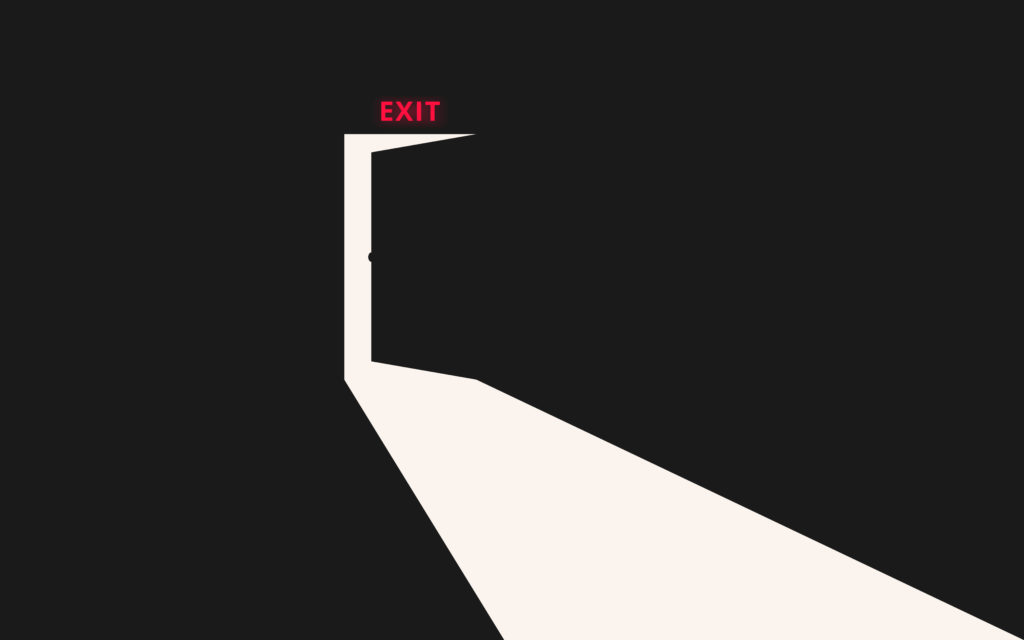 because of Bezos’ innovativeness and philosophies, he now stands alone as the richest man in the world.
because of Bezos’ innovativeness and philosophies, he now stands alone as the richest man in the world.
That doesn’t mean we need to worship the man, but it does suggest Bezos knows a little something about running a business, customer service, and turning a profit.
In his goodbye-letter to Amazon shareholders, he penned a letter north of 5,600 words (and you think my blog posts are long!) – meaning he was hoping it would be read, analyzed, and taken to heart.
Both Inc.’s Bill Murphy, Jr., and CNBC’s Taylor Locke weighed in on Bezos’ speech, each pulling pithy quotes from Bezos’ exit interview – with himself.
For Murphy, it was this:
“Create more than you consume.”
It comes down to this – as a person, an employee, or a CEO, it is paramount you generate more value for those with whom you do business or connect with.
As Murphy points out, Bezos’ words become a litmus test for individuals or companies you choose to spend time and money with.
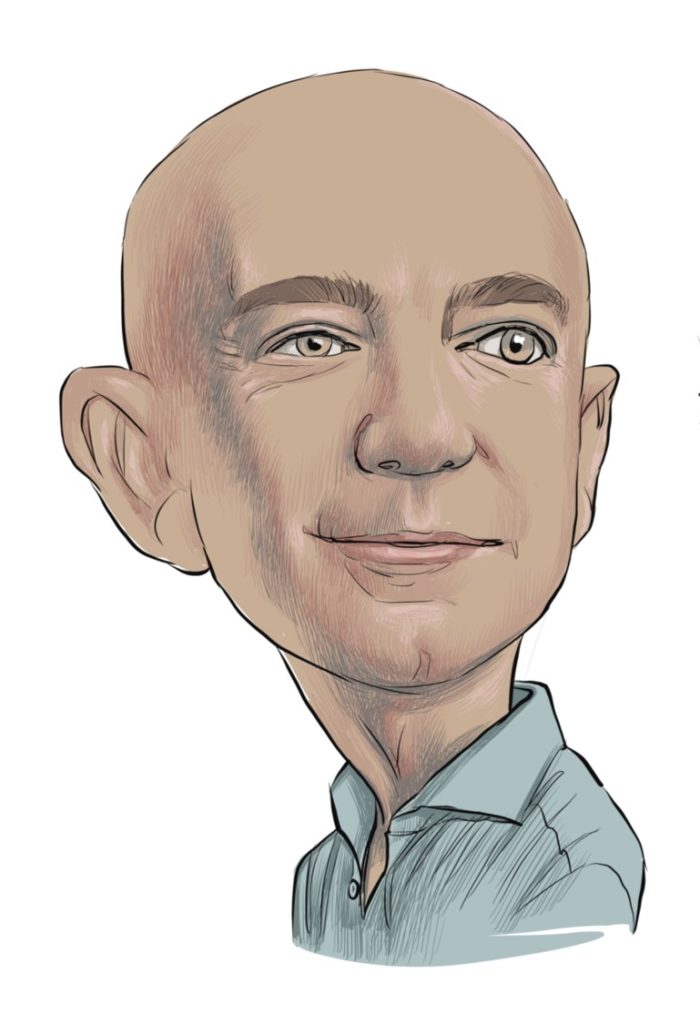 In his letter, Bezos – who is personally worth nearly $200 billion – goes to great lengths to illustrate how much value Amazon has generated for entities all over the world – universities, pension funds, 401ks, Amazon employees, third-party sellers, and of course, individual investors.
In his letter, Bezos – who is personally worth nearly $200 billion – goes to great lengths to illustrate how much value Amazon has generated for entities all over the world – universities, pension funds, 401ks, Amazon employees, third-party sellers, and of course, individual investors.
More than any other CEO or business leader, Bezos has championed the “customers first” charge – long before it became fashionable. Before there were Kindles or Amazon Prime, Bezos confounded his investors (who weren’t so happy back then) by plowing virtually every dime of profit back into the company, rather than paying out dividends.
In hindsight – as is usually the case – it paid off for everyone who stayed with Amazon.
CNBC’s Locke went elsewhere in Bezos’ long letter for her inspiration:
“The world wants you to be typical. Don’t let it happen.”
Bezos acknowledges that to truly be distinct is to have value. But that aid, it takes massive amounts of time, effort, and investment to maintain that level of difference.
As he explains, “The world wants you to be typical – in a thousand ways, it pulls at you. Don’t let it happen.”
In our little world of broadcast radio, falling into line, sounding like that Hot AC in L.A., or running the same promotions year after year are strong temptations.
Bezos acknowledges that to “be yourself” sounds organic and natural, but easy or free, it is not. And yet, to truly succeed in this world – or on the radio – you cannot be typical.
This was not your standard “Good-bye and good luck” letter. Not even close.
This is, far and away, the best shareholder letter I’ve ever read. I don’t say that lightly. It is @JeffBezos‘ last as CEO of @amazon. Read it until the very end. There are some real and profound lessons in there. https://t.co/DN7dB47Toa
— Andrew Ross Sorkin (@andrewrsorkin) April 15, 2021
I read Bezos’ sign-off, too. And I came away with this kernel of truth at the very end of this missive:
“Never let the universe smooth you into your surroundings. It remains Day 1.”
Or – you’re only as good as your last book, your last quarter, your last innovation. To a fault, I’ve tried to live that philosophy in my own career – naturally, some years have been better than others.
Finally, I’m reposting a blog I wrote back in 2017 – “Jeff Bezos: 6 Ways Traditional Media Can Save Itself,” inspired by another CNBC reporter, Matt Rosoff. Bezos’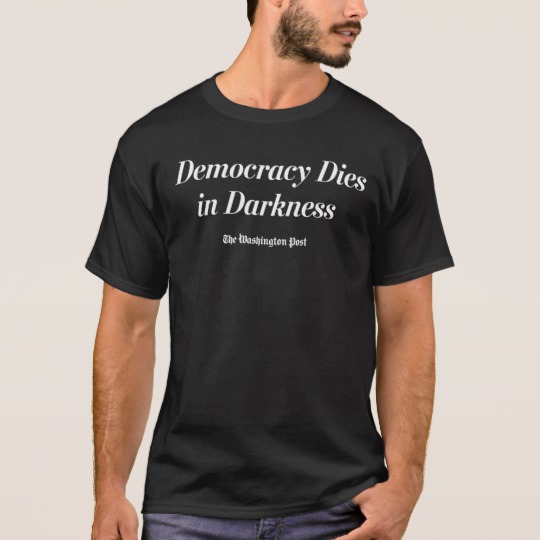 investment in purchasing The Washington Post is more than just an investment in a struggling newspaper. It is his attempt to save journalism. And inside Bezos’ philosophy are several nuggets – including “Complaining is not a strategy” and (my favorite) “You can’t cut your way to relevance.”
investment in purchasing The Washington Post is more than just an investment in a struggling newspaper. It is his attempt to save journalism. And inside Bezos’ philosophy are several nuggets – including “Complaining is not a strategy” and (my favorite) “You can’t cut your way to relevance.”
Bezos’ work also embodies the idea that your brand needs to stand for something. A cool name, a streamlined new logo, or a hackneyed “mission statement” in the kitchenette isn’t going to create tangible value for you, your bosses, your investors, or your employees.
At the Post, it has been “Democracy dies in darkness,” which has become more than just a slogan, a positioning statement, or a bumper sticker to his employees, as well as journalists all over the globe. It has become a statement of purpose, embraced by millions of earth’s citizens.
Gates and Bezos have exited their corporate posts by leaving us “pearls of wisdom.”
If we’re smart enough to clutch and embrace them.
You can read Jeff Bezos’ letter to Amazon shareholders here.
Register now for our free Techsurvey 2021 webinar: “Radio in the Year of COVID.” It’s loaded with insights for everyone in radio, especially as we emerge from the pandemic. Registration is here.
- Baby, Please Don’t Go - November 22, 2024
- Why Radio Needs To Stop Chasing The Puck - November 21, 2024
- Great Radio – In The Niche Of Time? - November 20, 2024




Fred, that was pure gold. Thank you, I needed that.
My first question is how much would Jeff Bezos be worth if he had upped his spending on employees by say, 5% and focused it on his lowest paid workers? Amazon would have earned $16-17 billion and he might be worth as little as $100 billion.
There are enough claims of warehouse abuse and choosing between bathroom breaks and employment that there must be some truth to them – and you don’t hear those things about other large tech companies either. Full disclosure – I’m a prime member, was an early adopter there and consider it to be a great value. But I’d gladly pay more if it meant that Amazon employees were treated better.
I wish Jeff Bezos had committed to treating his warehouse employees as well has his customers. I don’t think that we should be admiring CEO’s whose shareholder value props are built on the distended bladders of their workforce. If your business model can’t support basic level humane working conditions, your model is flawed, but that’s not the case here – the problem is greed.
We all know that Amazon could be a decent place to work, create admirable shareholder value and make its ex CEO the richest man in the world. Just not quite as much or quite as rich. Greed, pure and simple. As Fred said, don’t let the door hit you….
Bob, I get it, and I acknowledged in the post Bezos’ influence has been checkered. And as you point out, some of his business practices have hurt Amazon employees. Someone asked me if the blog’s title runs contrary to the gist of the post. I don’t think so.